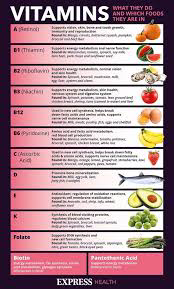ALL ABOUT VITAMIN B
VITAMIN B DEFICENCY
B vitamins, also called vitamin B complex, are a group of water-soluble vitamins that play important roles in many physiological processes in the body. There are eight B vitamins, including thiamine (B1), riboflavin (B2), niacin (B3), pantothenic acid (B5), pyridoxine (B6), biotin (B7), folic acid (B9), and cobalamin (B12). Each of the B vitamins has its own role and function in the body, but they often work together as coenzymes necessary for various metabolic reactions to occur. Features include: It aids in the metabolism of carbohydrates, fats and proteins and is essential in the production of ATP (adenosine triphosphate), the body's primary energy source.
2. Nervous System Function: B vitamins are important for the healthy functioning of the nervous system. They are involved in the production of neurotransmitters, chemical messengers that transmit signals in the brain and nervous system.
3. Red blood cell production: Certain B vitamins, such as vitamin B9 (folic acid) and vitamin B12 (cobalamin), are essential for red blood cell production. They are involved in the synthesis of DNA and RNA required for cell division and growth.
4. Skin, Hair and Nail Health: B vitamins are essential for maintaining healthy skin, hair and nails. They are involved in the production of collagen, a protein that gives structure to skin, hair, and nails.
5. Brain Function: B vitamins, especially vitamins B6, B9 and B12, play an important role in brain function. They are involved in the synthesis of neurotransmitters that regulate mood, memory, and cognitive function.
6. Immune System Function: B vitamins are involved in maintaining a healthy immune system. They help produce antibodies, proteins that play an important role in the immune response.
7. Fetal Development: During pregnancy, B vitamins, especially vitamin B9 (folic acid), are important for fetal development. They play an important role in the formation of the neural tube that develops in the baby's brain and spinal cord.
Dietary sources of B vitamins include whole grains, meat, poultry, fish, eggs, dairy products, legumes, nuts, seeds, green leafy vegetables, and fortified grains. However, some people do need B vitamins, especially if they have certain medical conditions, are on a restricted diet, or have trouble getting B vitamins from food. While essential for overall health, it's important to note that taking too much of certain B vitamins in supplements can cause side effects. It is always recommended to consult with your health care provider before starting any new supplement to determine the appropriate dosage for your individual needs.






Comments
Post a Comment